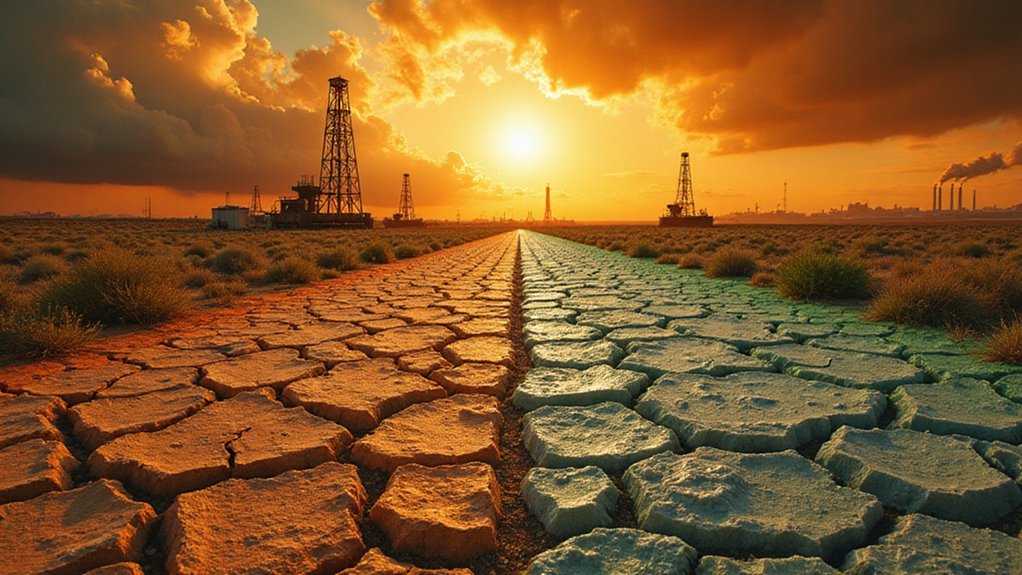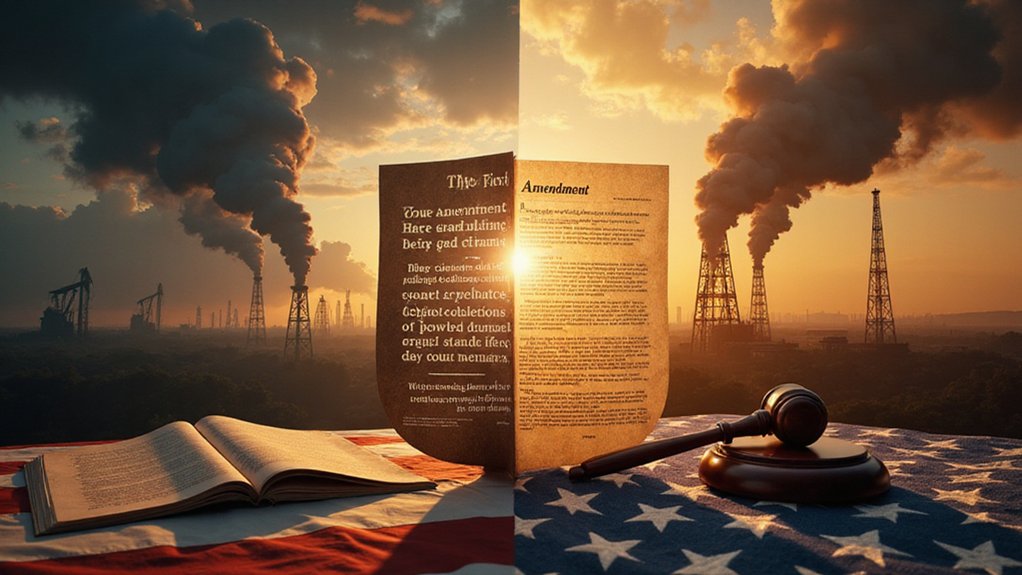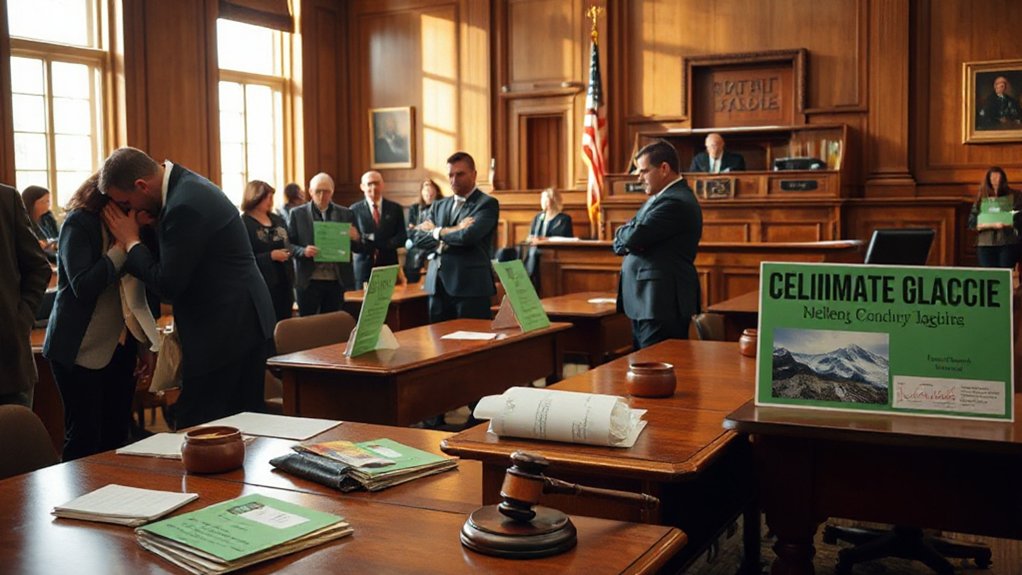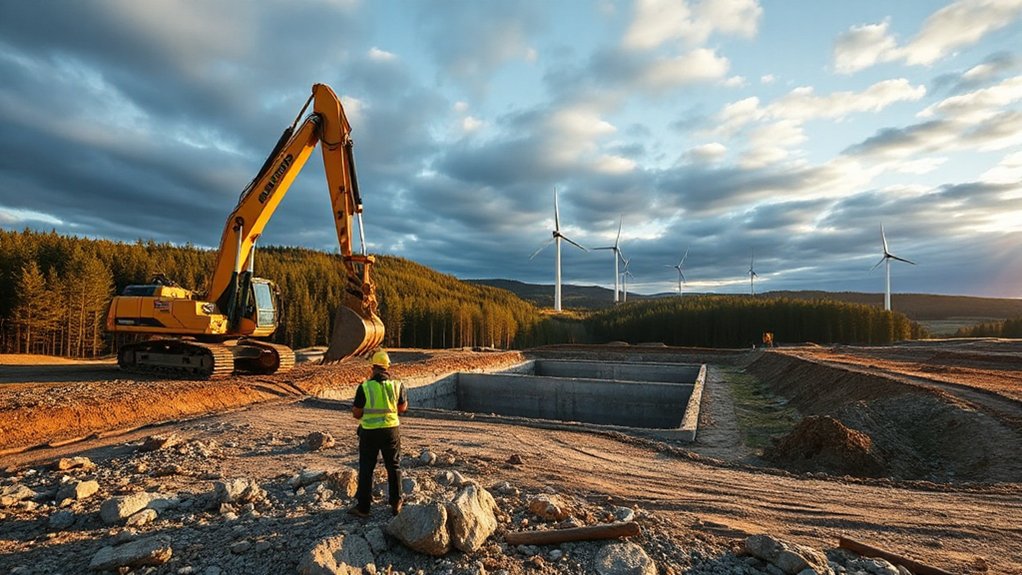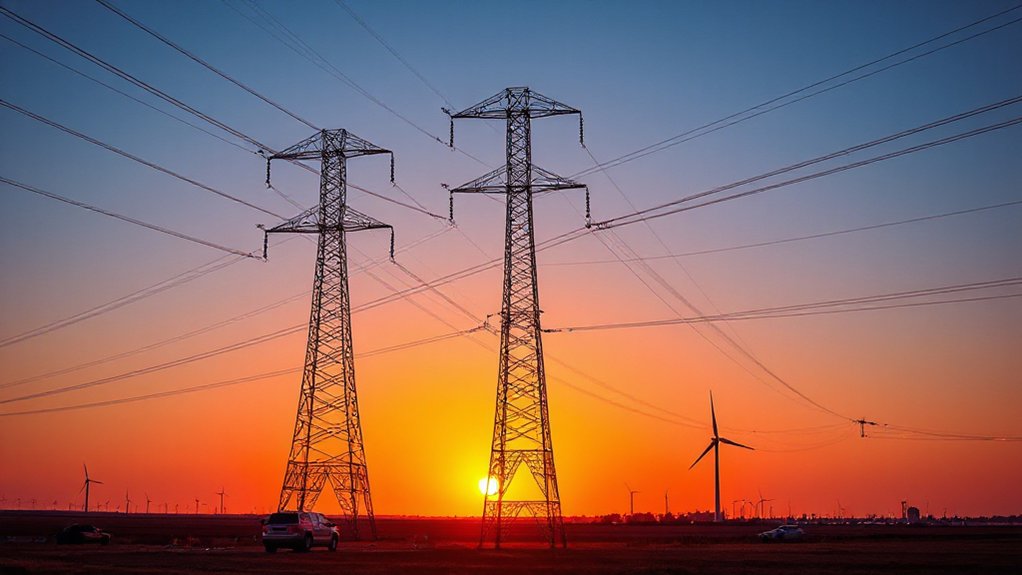Despite overwhelming scientific evidence, 14.8% of Americans refuse to believe climate change is real. In places like Oklahoma and Mississippi, that number jumps to over 20%. Let that sink in. One in five people looking at mountains of data and basically saying, “Nah, I’m good.”
Geography matters too—the coasts get it while the heartland, not so much. In some counties in Texas, denial spikes to a whopping 67%. Seriously.
Climate denial isn’t distributed equally—coastal areas accept science while inland regions dig in their heels, with some Texas counties reaching 67% denial.
Politics plays the biggest role in who believes what. Republicans are far more likely to reject climate science than Democrats. Surprise, surprise.
It’s not just about politics though. Lower education levels and ties to fossil fuel industries correlate strongly with climate denial. When your paycheck depends on oil, it’s convenient to think burning it causes no harm.
Media muddies these waters something fierce. Corporations and political entities actively spread misinformation, creating confusion and distrust. It’s hard to believe scientists when your favorite news channel constantly undermines them. The result? Echo chambers that reinforce existing beliefs and shut out inconvenient truths.
Then there’s the messaging problem. Doom and gloom climate predictions sometimes backfire spectacularly. Tell someone the world’s ending, and they’ll likely roll their eyes. “Another climate crisis? Yeah, right.” This skepticism breeds inaction, which is exactly what fossil fuel companies want. Emotional fatigue can diminish people’s sense of urgency over time as they become desensitized to constant crisis messaging.
Science literacy gaps don’t help either. Without basic scientific understanding, people fall prey to nonsense arguments. And with research funding cuts, fewer young scientists enter climate fields. That’s just great.
Economic self-interest is a powerful motivator too. Communities built around coal or oil resist climate action because, well, jobs matter. The stark reality that the richest 1% generate 15% of total carbon emissions while the poorest half contribute just 7% further fuels resentment and resistance to change. Industry lobbying ensures policies protect profits, not planets.
The rejection of climate science doesn’t exist in isolation. It’s part of broader science skepticism, fueled by political polarization and economic anxiety. Evidence be damned—if believing means changing your life, many would rather not. And that’s the inconvenient truth.
Social media platforms exacerbate this divide, as the study found echo chambers formed with little interaction between denialism and belief communities online.
References
- https://record.umich.edu/articles/nearly-15-of-americans-deny-climate-change-study-finds/
- https://www.pewresearch.org/science/2023/08/09/why-some-americans-do-not-see-urgency-on-climate-change/
- https://www.eco-business.com/opinion/the-epas-rejection-of-climate-science-threatens-everyone/
- https://www.ipie.info/research/sr2025-1
- https://www.csldf.org/2025/05/29/may-update-finding-hope-in-the-data/
